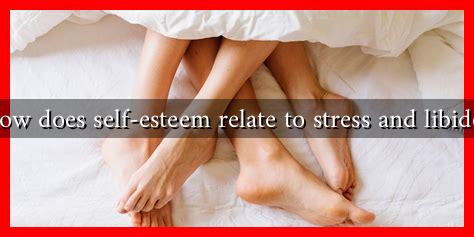-
Table of Contents
How Does Self-Esteem Relate to Stress and Libido?
Self-esteem, stress, and libido are interconnected aspects of human psychology and physiology that significantly influence one another. Understanding this relationship can provide valuable insights into mental health, relationships, and overall well-being. This article explores how self-esteem affects stress levels and libido, supported by research, statistics, and real-life examples.
The Connection Between Self-Esteem and Stress
Self-esteem refers to an individual’s perception of their worth or value. High self-esteem is often associated with positive self-regard, confidence, and resilience, while low self-esteem can lead to feelings of inadequacy and self-doubt. The relationship between self-esteem and stress is well-documented:
- High Self-Esteem: Individuals with high self-esteem tend to cope better with stress. They are more likely to view challenges as opportunities for growth rather than threats.
- Low Self-Esteem: Conversely, those with low self-esteem may perceive stressors as overwhelming, leading to increased anxiety and emotional distress.
A study published in the journal Psychological Science found that individuals with low self-esteem reported higher levels of stress and anxiety in response to daily challenges. This heightened stress can create a vicious cycle, further diminishing self-esteem and exacerbating mental health issues.
Stress: The Silent Saboteur of Libido
Stress is a natural response to perceived threats, but chronic stress can have detrimental effects on various aspects of health, including libido. The body’s stress response triggers the release of hormones such as cortisol and adrenaline, which can interfere with sexual desire and performance.
- Hormonal Imbalance: Elevated cortisol levels can disrupt the balance of sex hormones, leading to decreased libido.
- Emotional Withdrawal: Stress often leads to emotional withdrawal, making individuals less inclined to engage in intimate relationships.
- Physical Symptoms: Chronic stress can result in fatigue, headaches, and other physical symptoms that diminish sexual interest.
Research from the Journal of Sexual Medicine indicates that individuals experiencing high levels of stress report significantly lower sexual desire and satisfaction. This decline in libido can further impact self-esteem, creating a cycle of negative feelings and experiences.
Self-Esteem, Stress, and Libido: The Interplay
The interplay between self-esteem, stress, and libido is complex. Low self-esteem can lead to increased stress, which in turn can diminish libido. This cycle can be particularly pronounced in romantic relationships, where self-esteem issues may lead to performance anxiety and relationship dissatisfaction.
- Performance Anxiety: Individuals with low self-esteem may fear judgment from their partners, leading to anxiety during intimate moments.
- Relationship Dynamics: Stress can create tension in relationships, further eroding self-esteem and sexual desire.
- Communication Breakdown: Poor self-esteem can hinder open communication about sexual needs and desires, exacerbating the issue.
For example, a case study published in the Archives of Sexual Behavior highlighted a couple where one partner’s low self-esteem led to increased stress and decreased sexual intimacy. Through therapy, they learned to communicate openly, which improved both self-esteem and sexual satisfaction.
Strategies for Improvement
Addressing the interconnected issues of self-esteem, stress, and libido requires a multifaceted approach. Here are some strategies that can help:
- Therapy: Cognitive-behavioral therapy (CBT) can help individuals reframe negative thoughts and improve self-esteem.
- Mindfulness and Relaxation Techniques: Practices such as meditation and yoga can reduce stress and enhance emotional well-being.
- Open Communication: Encouraging open dialogue with partners about feelings and desires can strengthen relationships and improve intimacy.
- Physical Activity: Regular exercise can boost mood and self-esteem while reducing stress levels.
Conclusion
The relationship between self-esteem, stress, and libido is intricate and significant. High self-esteem can act as a buffer against stress, while low self-esteem can exacerbate stress and diminish sexual desire. By understanding these connections, individuals can take proactive steps to improve their mental health and enhance their intimate relationships. Addressing self-esteem issues, managing stress, and fostering open communication are essential for breaking the cycle and promoting overall well-being.

